Everybody comes to Chalak's
The crisis means money is scarce but rumours are plenty.
In the Iraqi Kurdish city of Sulaimania, in the smoky confines of a popular lounge bar, a pseudo-bohemian crowd gathers nightly to discuss life and the arts.
Here one can easily forget there is a killing ground a few kilometres away, and a battle against an extremist group that threatens the stability of the entire world.
As scenes from the 1942 film Casablanca flicker on a giant screen behind him, there is no doubt from where the lounge's proprietor has drawn inspiration.
"I don't know if many people here have heard of Casablanca, or if they are familiar with any of the Hollywood classics, but I'd like them to learn about them here," says Chalak Salar, of his eponymous cafe, Chalak's Place. "So many lessons, so many parallels."
"When you step inside here, it’s hard to believe there's a war going on down the road, and I’d like to keep it that way," says the 43-year-old.
A tall order when there are frequent insurgent attacks taking place just 100 kilometres south in the oil-rich city of Kirkuk, and a full-blown conflagration with the Islamic State group further north in Mosul.
Moreover, with the region's economy all but paralysed by a budget dispute with Baghdad, and more than two million internally displaced persons from every corner of war-ravaged Iraq seeking refuge here, it is hard not to think about the toll the endless series of crises is taking on the regional economy and on the average Kurdish family.
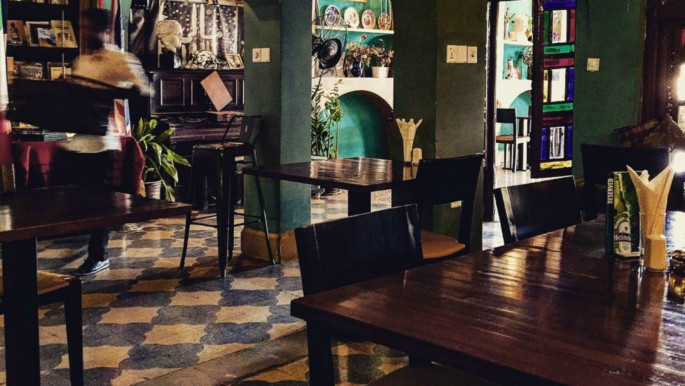 |
|
The premises were transformed into a lounge reminiscent of an underground |
Tribute to bygone era
And yet Salar is an unabashed nostalgist.
"Growing up in Kirkuk, I remember it as a paradise, especially our area in Arafa. It was built for the oil company workers, and my father worked for the British Petroleum company for many years. We had a wonderful life, and I had a wonderful childhood," he recalls.
"In my neighbourhood, there were Arabs, Kurds, Turkmen and Christians. We all interacted together, and there weren't any problems. I speak Kurdish, Arabic and Turkmen. Things started to change from the early 1990s."
Salar fled Kirkuk for the Kurdish safe havens in 1992. In 2000, he moved to London, became an interior designer, and opened a café in Finsbury Park.
But it wasn't long before he grew restless. In the years following the US-led war in 2003, as the Kurdish region became a boomtown, international franchises arrived on the scene, and shining skyscrapers replaced crumbling stone buildings.
Salar watched from afar as foreign investments poured in, and the Kurdish region's hospitality sector developed to meet rising standards.
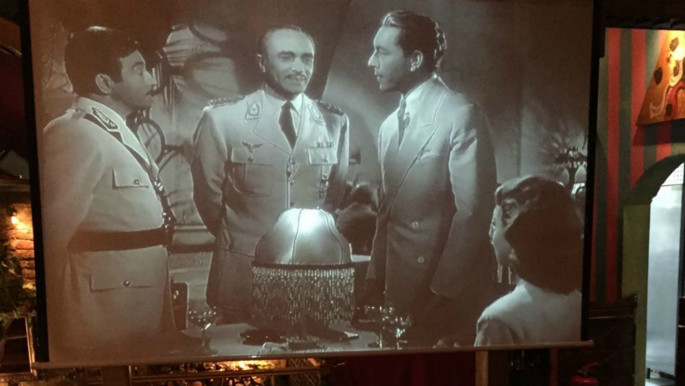 |
| Scenes from the 1942 film Casablanca flicker on a giant screen in Chalak's place [Tanya Goudsouzian] |
In 2013, he decided to return from the UK to open his cafe.
"I am no businessman, but if I am selling anything, it's my way of life. That’s my product. My lifestyle," he says.
Chalak's Place is a tribute to all things bygone. Salar obtained the lease on one of the few remaining Ottoman-era buildings in Sulaimania that was being half-heartedly used for peddling old bric-a-brac and handicrafts.
With an initial investment of a few hundred thousand dollars, he was able to transform the premises into a lounge reminiscent of an underground European intellectuals' salon of the Jazz Age, complete with fireplace and original artworks.
It was an instant hit. Within months of its opening, Chalak's Place had become the rendezvous destination for the literary, artistic and intellectual elite of the city, and the wider Kurdish region - akin in spirit to Les Deux Magots or Cafe de la Paix in Paris.
In its dim-lit premises, with marble busts of Kurdish poets tucked in corners, Iraqi Kurdistan's Zolas, Picassos, and Hemingways gather nightly to discuss the region's floundering economy, festering internal Kurdish politics or the next big Kurdish-language film that might stand a chance at the Cannes festival.
But just as things were starting to go smoothly, the problems with IS began to worsen, and the local economy took a massive hit.
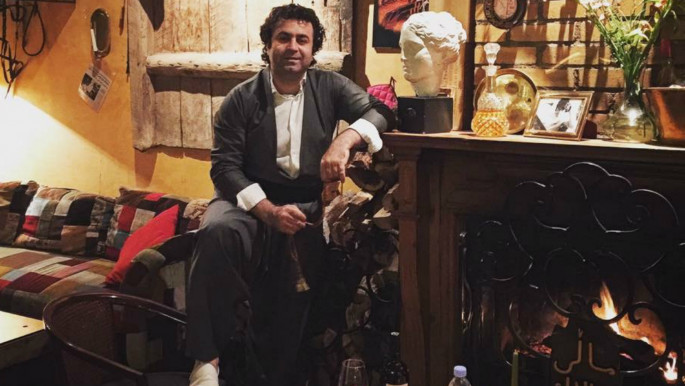 |
|
Chalak Salar is an unabashed nostalgist [Tanya Goudsouzian] |
Best of times, worst of times
Actor and filmmaker Shwan Attouf is a regular. A native of Sulaimania, his short film Mal oo kleel ["Home and key"] was screened at Cannes last year.
"Today we are in the worst position ever - our situation, our economy," he says. "But the worse it gets, the more productive we are as artists. It's the best time to be creative."
Attouf's next project is a film about Yazidi women who survived the Sinjar massacre in 2014.
The best time to be creative? Perhaps. But it is the worst time to run a business, observes Salar. He recounts how the bulk of his customer base decided to cut their losses and abandon the Kurdistan region, arguing it was no longer safe or profitable.
"The war with IS is affecting every single business. The economic situation - people haven't been paid their salaries for months," he says.
In the span of a year, the once promising local economy has come to a standstill.
"The whole nation is depressed," says Salar. "The ones who have money, they're lucky. They travel more often. The poor are getting poorer."
He adds: "I am losing money big-time. We are earning 50-60 percent less than last year. To own a restaurant is a nightmare, but imagine owning one here."
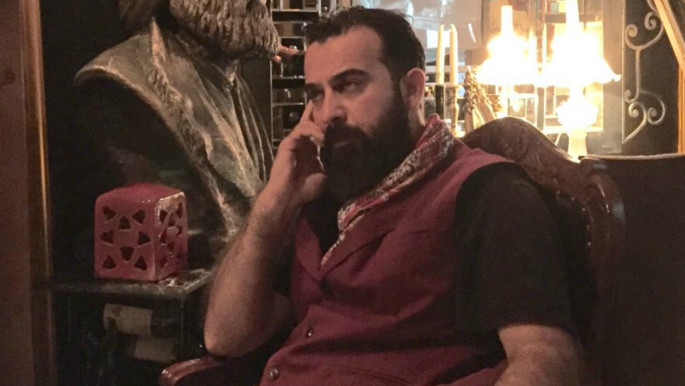 |
|
Actor and filmmaker Shwan Attouf is a regular at Chalak’s place [Tanya Goudsouzian] |
Aside from the war, Salar lays much of the blame for the prevailing malaise on the shoulders of the Kurdish regional government. He says "they've managed things so badly that they have made us forget our Kurdish soul".
"People once had the passion to die for their homeland, but they took this away from the Kurds - they took away our passion and made people apathetic," he says.
His sentiments are shared by novelist Rauf Behgard, who recently published an anthology of short stories titled Slaw Kafka ["Dear Kafka"]. Behgard maintains that Kafkaesque themes now pervade all aspects of Kurdish life, where everybody feels a sense of alienation from society.
"There is a sense of disillusionment, and the Kurds have changed as a result," he says. "Compare the mood now, with the mood after the 1991 [Kurdish] uprising, when the Peshmerga came down from the mountains... We gave them a chance, for years, until 2003, because we had come to believe that it was Saddam Hussein who was the greatest obstacle to our collective aspirations. But that period of hope quickly dissipated."
If a sense of apathy and alienation is the order of the day, perhaps the only way to cash in is to run a cafe for philosophers.
Here in the gloom and shadows, which reflect the mood of the city, there finds a home for the fitting pessimism. If this mood prevails, Chalak's Place may not go out of business for some time to come.
Tanya Goudsouzian is a writer, editor - and cafe-lover - based in Doha, Qatar. Follow her on Twitter: @tgoudsouzian
Lara Fatah is co-founder of Zanraw Consulting and Alfa 5 and describes herself as 'an occasional writer'. Follow her on Twitter: @Lara_FFatah
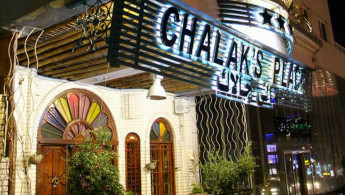


![sudan women [getty] sudan women [getty]](/sites/default/files/styles/image_330x185/public/media/images/5019D7F4-52AF-4377-8A05-885D27476479.jpg?h=d1cb525d&itok=tKXV7r-W)